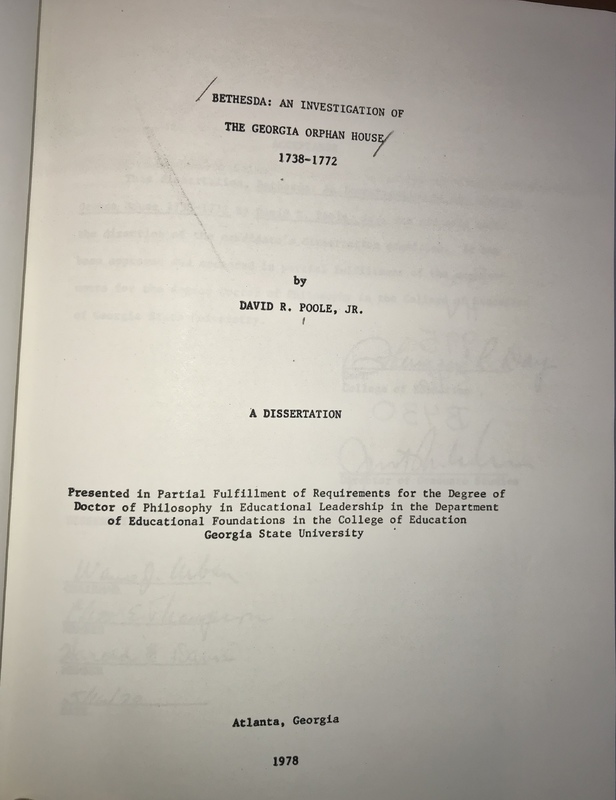Bethesda: An Investigation of the Georgia Orphan House
Regardless of Whitefield’s personal reasons behind constructing the orphan house, people became frustrated by the the idea that the trustees working alongside Whitefield were only building the house in order to boost the colonies economically. Though this may have been a driving reason behind their intentions to build, Whitefield was intentional in informing his followers that he was supporting this project because of his genuine concern for the children and the lack of care they were receiving during this time period. Whitefield stated, “I thought it therefore be noble design to erect a house for the fatherless children. And believing such a provision for orphans would be some inducement with many to come over, I fell in love with the design and was resolved in the strength of God, to prosecute it with all my might.” (Bethesda: An Investigation of the Georgia Orphan House).
Whitefield was outspoken in this idea and was very clear that the fatherless had always been something he had a passion for and a desire to help. Not only did he want to help the fatherless children, but it would also help spread Christianity throughout the colonies. This Orphan house would not only give him official access to the American Colonies but also would serve as a means to spread Methodism. By establishing that within the orphanage, children would be brought up in the faith and therefore spread it further. Whitefield stated, “This allowed advantageous means of spreading the social, religious, and philosophical platform for the methodist party” (Bethesda: An Investigation of the Georgia Orphan House, pg 38) Therefore, it was clear that Whitefield was not doing this for money but rather for the children and his desire to continue to spread Christianity. Oddly enough, despite his huge contributions to the religious movement at this time and even the installation of the Bethesda Orphan House, Whitefield remains a “controversial leader who, though relatively unknown three hundred years after his birth, was a true giant in his day and remains an important figure in America's history” (George Whitefield: America’s Spiritual Founding Father).
Whitefield recognized the truth about his own sinful nature and wanted to make others aware too. Whitefield stated, “I can remember such early stirrings of corruption in my heart, as abundantly convinces me that I was conceived and born in sin; that in me dwelleth no good thing by nature, and that if God had not freely prevented me by his grace, I must have been forever banished from his divine presence.”(George Whitefield: America’s Spiritual Founding Father). He had a passion for not only the people he preached too, but also the young orphans. He wanted everyone to experience this saving grace and believed that by instilling these truths into the children of his orphan house, he could save them from a life of eternal damnation.
